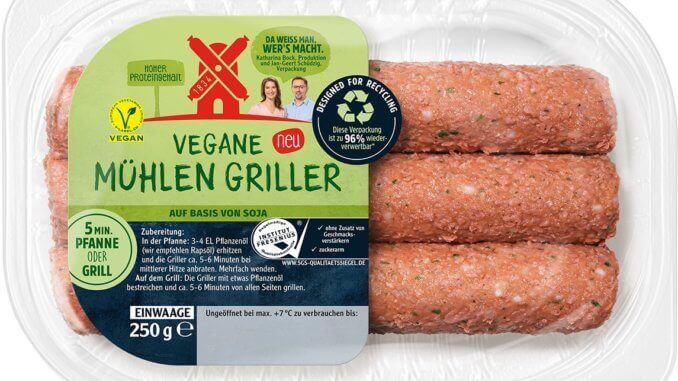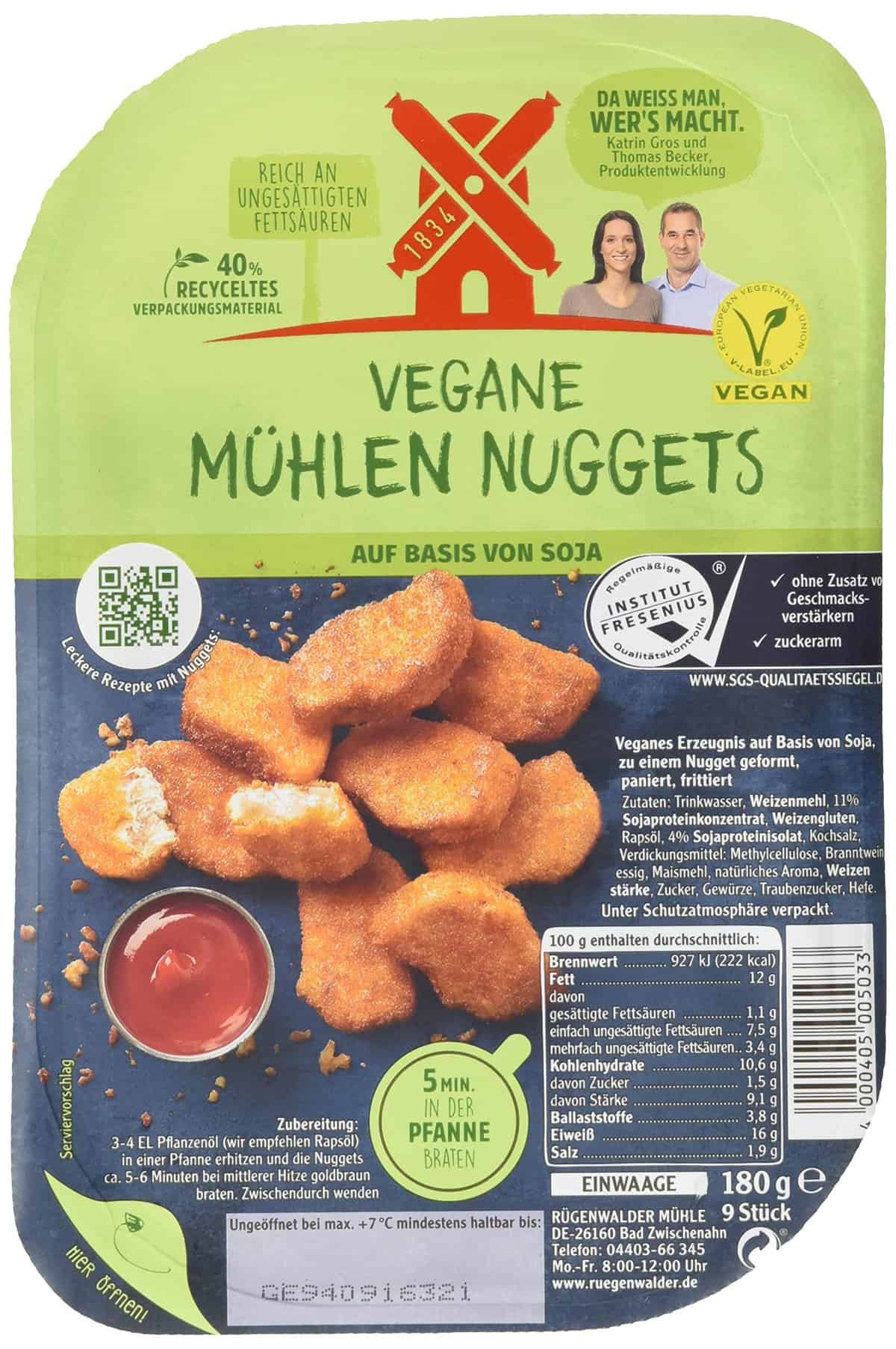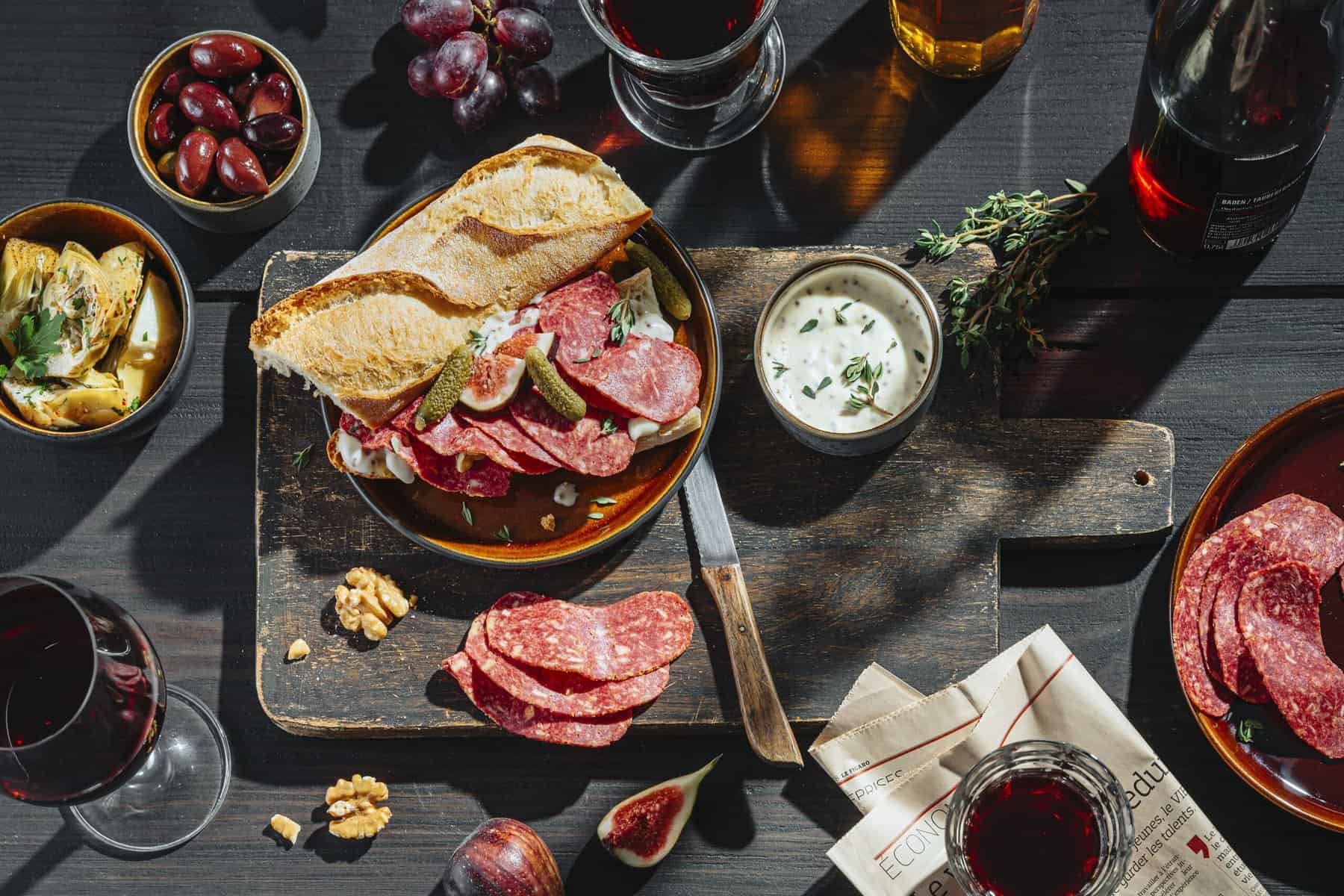After looking closely at meat producers in the Americas launching plant-based products last year, this series regards meat producers in Europe that have entered the plant-based market.
As vegans, some consumers may prefer not to fund companies that are in the business of killing animals. However, it would be remiss not to acknowledge that large producers have the ability to mass-produce at scale and bring plant-based products into the mainstream, thus helping to lower prices.
This will be the final installment of our three-part series, following the first and the second, covering meat producers in Europe that have ventured into plant-based, in no particular order.

Rügenwalder Mühle
Rügenwalder Mühle is a German food manufacturer that initially specialized in meat products, particularly traditional sausages. The company dates back to 1834, and over the years, it has expanded its product range to include new varieties of sausages, convenience products, delicatessen items, and plant-based products.
Rügenwalder Mühle’s foray into plant-based began in 2016 with the launch of its “Vegetarische Linie” (Vegetarian Line), a range of vegetarian sausages and meat substitutes. In 2018, Rügenwalder Mühle introduced its “Vegane Linie” (Vegan Line), a collection of entirely vegan products with liver sausage alternatives, nuggets, schnitzel, burgers and mince. The company continued to expand the vegan product line in 2019, which helped it increase revenue to €212 million.
By 2021, Rügenwalder Mühle reported that the sales of its plant-based products equaled that of its animal protein products, and in 2022, meat-free sales surpassed meat product sales, prompting the company to continue focusing on development in the category. Rügenwalder Mühle secured a partnership with Mirai Foods for hybrid alt meat using cultivated fat and has launched a plant-based chili mett. While the company still sells meat products, as of this year, it has become the German market leader for meat alternatives.

Last November, Rügenwalder Mühle announced it was to be acquired by Pfeifer & Langen. Christian Rauffus, Deputy Chairman of the Supervisory Board of Rügenwalder Mühle Carl Müller GmbH & Co. KG, stated at the time, “Our company has developed from what was once a regional sausage factory into one of a leading company for plant-based foods in Germany. In less than ten years, we have brought vegetarian and vegan meat alternatives out of their niche and into the centre of society. With this investment, we want to take the opportunity to further develop this portfolio, especially beyond the German market.
Shortly after, in January of this year, the company discontinued production of its classic “Schinken Spicker” animal-based ham to create more capacity in production facilities for further plant-based offerings such as the “Vegan Hauchschnitt”, then went on to further expand the vegan line in April.
Tönnies Group – Gutfried
The Tönnies Group is a German meat processing company that originally focused on pork processing and was one of the first companies to introduce automated slaughterhouses and packaging plants. The company is a major supplier of meat to retail and food service customers in Europe and around the world, exporting its products to over 120 countries.
The company owns a long list of subsidiaries, including some brands that offer plant-based meat options. In 2019, one of the subsidiaries, Gutfried, introduced its “Ohne Fleisch” line, which features a variety of plant-based sausages. The brand’s product line has since expanded to include smoked salmon alternatives, sandwich meats, chicken alternatives, and fish sticks.
In 2021, The Tönnies Group announced that it was lumping all of its vegan and vegetarian production activities under the business unit Vevia 4 You GmbH & Co. KG, listing products under the brand names Gutfried, Veviva and Es Schmeckt. However, neither Vevia nor Es Schmeckt seem to be available.
Tillman’s, another subsidiary of Tönnies Group, produces the Vegetar!a meatless range exclusively for Netto Marken-Discount supermarkets.

InFamily Foods Holding
InFamily Foods was founded in 2020 from the merger of the Reinert and Kemper companies. Reinert was founded in 1931 by Ewald and Hermann Reinert and Kemper was founded in 1888 by Hermann Kemper. The holding company includes the companies The Family Butchers, Cultivated B and The Plantly Butchers with the brand Billie Green. The headquarters and plants of InFamily Foods are located in Nortrup and Versmold in the northern German state of Niedersachsen and the company is now one of the leading meat processors in Germany.
In autumn 2020, the company established a plant-based subsidiary, The Plantly Butchers, with plans to develop plant-based meat substitutes made from wheat protein. In September of 2022, The Plantly Butchers launched its inaugural brand, Billie Green, in German supermarkets, with five plant-based products: two types of sliced vegan salami, a whole round vegan salami, one bacon and one ham cubes. Among other snack products, three new vegan barbecue products were introduced in 2023 and three new sausage alternatives are available since June 2024.
Last year, InFamily Foods also founded the cell culture company The Cultivated B. to optimize alternative protein production for the food, pharmaceutical, and cosmetic industries. This sister company of The Family Butchers is currently seeking regulatory approval for the sale of hybrid cultivated meat products in Europe.

Danish Crown – Denmark
Danish Crown is one of Europe’s largest meat producers, producing more pork than any other company in Europe. The company established its first pig slaughterhouse in 1887 and now exports meat to over 140 countries around the world.
In 2019, Danish Crown announced that it would stop the slaughter of pigs in one of its German factories and revealed plans to produce its first plant-based product, a plant-based burger made with peas and beets. But it seems the product never came to fruition as there was never a reported launch. The company did confirm the launch of hybrid minced pork and beef in September of 2019, where 50% of the meat had been replaced with vegetables.
In 2022, Danish Crown officially launched a range of plant-based products under its Den Grønne Slagter (The Green Butcher) brand. The product range now includes over 25 plant-based meat products, including meatballs, mince, burgers, nuggets, and a variety of sandwich meats.




